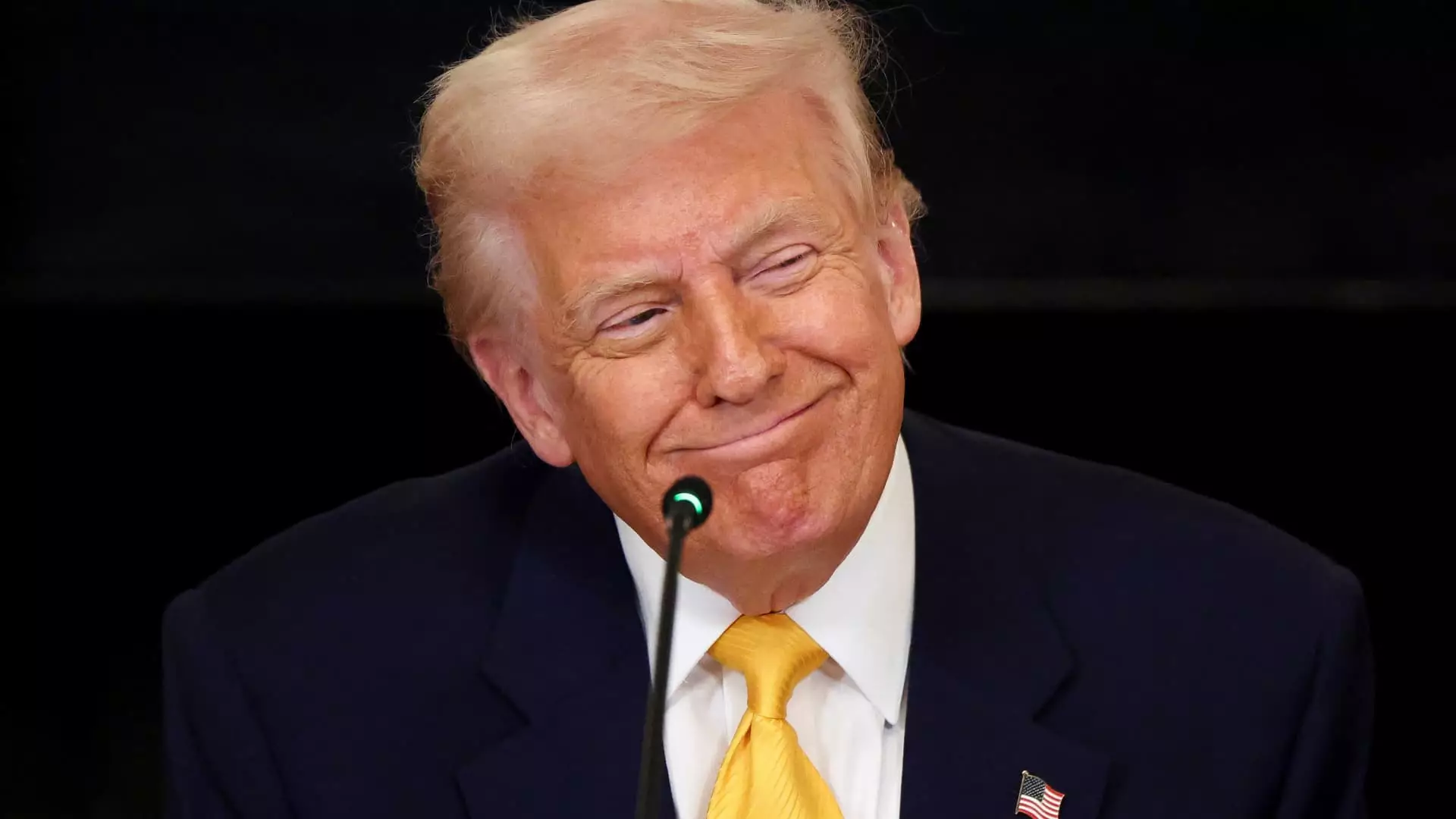In a bold move that has left many in the business community reeling, President Donald Trump continues to forge ahead with his controversial tariff policies, seemingly unfazed by the risks they pose to the American economy. Dismissing concerns about the impending uncertainty, Trump is adamant that the economic turbulence—exacerbated by his planned tariffs—will ultimately pay off. Yet, the reality is that his approach is cultivating an environment marked by volatility and apprehension, raising legitimate fears about the future of the U.S. market.
The Paradox of Prosperity
Trump’s rhetoric suggests that the tariffs will restore a sense of fairness to international trade, positioning the U.S. as a victim of global economic exploitation. However, the essence of this strategy breeds paradox. By raising the costs of imports, the administration could be creating a self-imposed recession, a scenario he casually acknowledges while asserting that it’s a necessary transition to reclaim wealth for Americans. This optimism, it seems, is a façade that masks the legitimate concerns voiced by economists regarding the tangible risks of economic contraction.
The Ripple Effect on Businesses
The insecurities stemming from Trump’s tariff decisions are palpable across various sectors. Business leaders, grappling with the unpredictability of planning in such a turbulent landscape, have expressed frustration and confusion. The President’s disinterested stance towards their need for stability underscores a fundamental disconnect between Washington and Main Street America. When companies are faced with inflated costs brought on by tariffs, they may be forced to either absorb the price hikes, reducing their profit margins, or pass those costs onto consumers—a move that could drive inflation far beyond the levels deemed acceptable.
The Globalist Narrative: A Double-Edged Sword
Trump’s continued vilification of “globalists” appears to play well to his base, crafting a narrative of retribution for years of perceived exploitation. However, this rhetoric is not without consequences. It can alienate allies and create friction with trading partners who see these tariffs as an aggressive form of economic warfare. By considering tariffs as a weapon rather than a tool for negotiation, the administration runs the risk of escalating tensions, potentially leading to retaliatory actions from impacted countries.
A Tormented Wall Street
The financial markets are not immune to the turmoil generated by Trump’s tariff strategies. Wall Street has experienced notable fluctuations as investors weigh the impacts of these policies. As Trump lifts tariffs on certain imports while instating new ones on others, confidence in long-term investment perspectives is waning. The threat of more tariffs looms large, casting a shadow over economic projections. Ultimately, this kind of unpredictability could deter foreign investments, which are vital for a robust economy.
Trump’s commitment to an unconventional economic approach raises troubling questions about the balance between asserting national interests and managing global collaborations. While the promise of renewed American wealth is an enticing vision, it remains shrouded in the clouds of uncertainty that his tariff policies have abysmally cultivated. The American economic ecosystem deserves an approach grounded in strategy and foresight, rather than the whims of a President who seems more inclined to wage a trade war than to nurture economic relationships.

